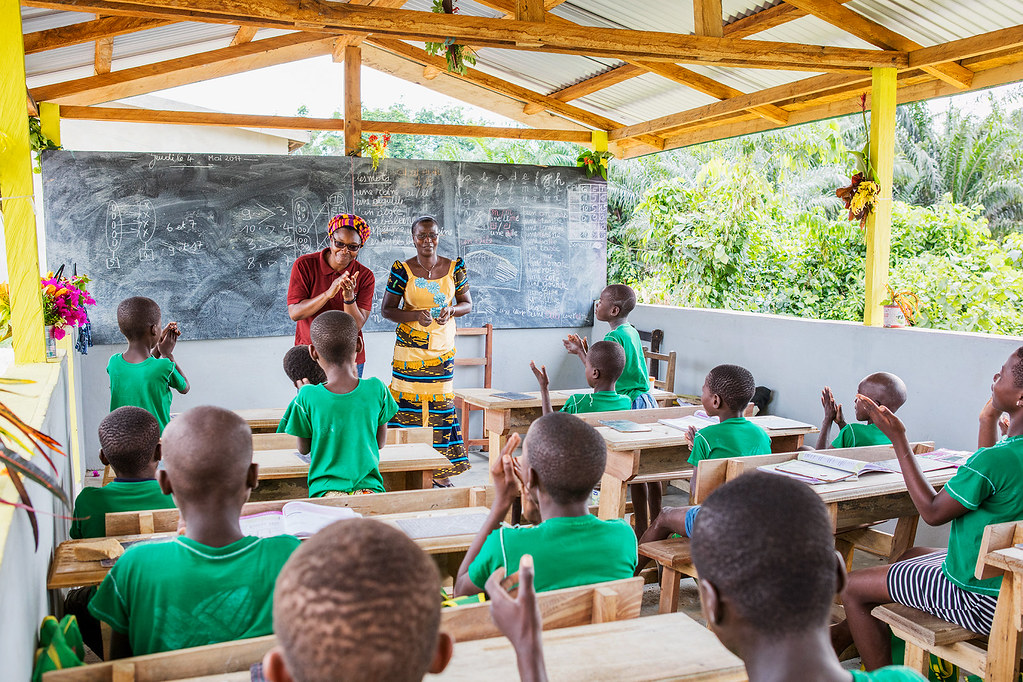Here at CRASHING INTO POTENTIAL (CIP), we believe that being resilient and overcoming adversity isn’t as simple as a Wellbeing class once a week, but in fact, is a complex skill to master. A multifaceted concept that we don’t just ‘get’! This is why we’re big on the Multi-Disciplinary Approach. Resilience can – and should – be taught in every subject. We teach students the fundamental skills need to overcome the sophisticated – and sometimes brutal – challenges life conjures up between the ages of ‘birth’ and ‘death’. The end goal is to enhance students' ability to overcome adversity before they even know how to spell adversyti.
In a rapidly changing world, education must evolve to equip students with the skills necessary to overcome adversity and thrive. A multi-disciplinary approach offers a holistic learning experience that not only aims to enhance students’ academic achievement but also cultivates essential life skills. Below, we explore the benefits of a multi-disciplinary approach in helping students develop the skills to overcome adversity in various aspects of their life (including in their education of course).
Holistic Learning and Critical Thinking
Teaching the CIP framework in multiple subject areas provides students with a holistic learning experience that goes beyond the confines of individual subjects. By integrating multiple disciplines, students are exposed to a wide range of knowledge, allowing them to develop a comprehensive understanding of ways they can tackle different challenges. This holistic approach enhances critical thinking skills, enabling students to analyse problems from different perspectives and make connections between seemingly unrelated concepts. When faced with adversity, this ability to think critically and consider various angles becomes crucial. Students can assess challenges from multiple viewpoints, identify underlying causes, and devise innovative solutions. By examining adversity through a multi-disciplinary lens, students become adept at evaluating the root causes of problems and developing creative strategies to overcome them.
Real-World Relevance and Application
One of the key benefits of our multi-disciplinary programs is the emphasis on the practical application of knowledge to real-world situations. Students engage in hands-on experiences that bridge the gap between theory and practice. This approach equips students with the skills needed to overcome adversity in real-life scenarios. They learn to adapt their knowledge, draw connections between different disciplines, and apply their skills to novel challenges. When faced with adversity, students can leverage their practical experience to navigate unfamiliar situations with confidence. This ability to transfer knowledge and skills across different contexts helps them identify relevant solutions and make informed decisions. By providing real-world relevance, a multi-disciplinary program prepares students to face adversity head-on, armed with the practical tools and experiences necessary for success.
Collaboration and Communication Skills
In a multi-disciplinary program, collaboration and effective communication are essential components. Students are encouraged to work in teams, engage in group projects, and exchange ideas with their peers. This collaborative environment fosters the development of teamwork skills, cooperation, and effective communication. When facing adversity, the ability to collaborate becomes paramount. Students can leverage the diverse strengths of their teammates, share knowledge, and work towards common goals. They learn to actively listen, express their thoughts clearly, and provide constructive feedback. These communication and collaboration skills enable students to effectively navigate conflicts, solve problems collectively, and overcome adversity as a cohesive unit. By promoting teamwork and communication, a multi-disciplinary program equips students with the necessary skills to face challenges together and find solutions through cooperation.
Creativity and Innovation
The integration of different disciplines in a multi-disciplinary program nurtures students' creativity and fosters innovative thinking. Exposure to various subjects allows students to explore different perspectives, make connections between seemingly unrelated ideas, and think outside the box. When confronted with adversity, this ability to think creatively becomes a valuable asset. Students can approach challenges from unconventional angles, consider alternative solutions, and apply creative problem-solving techniques. By encouraging a mindset of innovation, a multi-disciplinary program empowers students to overcome adversity with resourcefulness and originality. They learn to embrace the unknown, adapt their thinking, and challenge traditional approaches. Through creative thinking, students discover unique solutions, develop resilience, and become comfortable with navigating uncertainty.
Adaptability and Flexibility
A multi-disciplinary program cultivates adaptability and flexibility in students. By engaging with diverse subjects, they become comfortable with navigating different environments, contexts, and ways of thinking. This adaptability becomes a valuable skill when faced with adversity. Students learn to adjust their approach, adapt their strategies, and remain open to new ideas. They become resilient in the face of unexpected challenges and are more willing to embrace change. When confronted with adversity, students can draw on their diverse knowledge and experiences to find alternative paths and overcome obstacles. The ability to adapt and remain flexible allows students to navigate uncertain situations with confidence, resilience, and a willingness to learn and grow.
Personalized Learning and Passion Pursuit
A multi-disciplinary program allows for personalized learning and the pursuit of individual passions. Students have the opportunity to explore subjects they are genuinely interested in, which fosters intrinsic motivation and engagement. When students are passionate about their education, they are more likely to display perseverance and resilience in the face of adversity. Their genuine interest and commitment to their chosen field or subject empower them to overcome challenges with a determined mindset. By pursuing their passions, students develop a deep sense of purpose and direction, which fuels their drive to overcome obstacles. They are willing to put in the extra effort, seek additional resources, and persist through difficulties. The personalized learning aspect of a multi-disciplinary program nurtures students' unique strengths, talents, and interests, enabling them to leverage their individual abilities to overcome adversity and achieve success.
A multi-disciplinary approach to education equips students with the skills needed to overcome adversity in various aspects of their learning journey. By fostering critical thinking, promoting real-world relevance, developing collaboration and communication skills, nurturing creativity, encouraging adaptability, enabling personalized learning, and fostering global perspectives, multi-disciplinary programs empower students to tackle challenges with resilience, adaptability, and innovative thinking. Through this approach, students develop the necessary skills to navigate obstacles, embrace growth opportunities, and thrive in an ever-changing world. By equipping them with a comprehensive skill set, a multi-disciplinary education lays a strong foundation for students to overcome adversity and achieve success in both their academic and personal lives.





